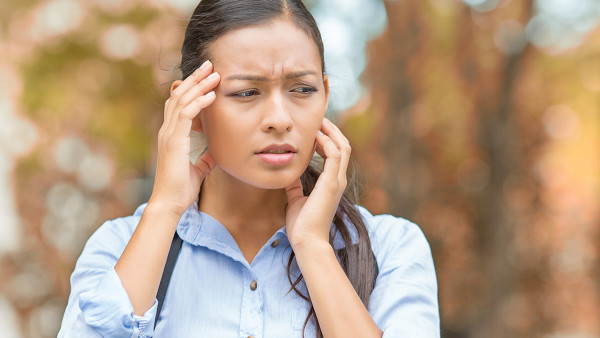Ofloxacin Causes Drug-Induced Dry Eye

Introduction
Ofloxacin is a fluoroquinolone antibiotic that is used to treat a variety of bacterial infections. It is a broad-spectrum antibiotic that is effective against both gram-positive and gram-negative bacteria. Ofloxacin is well-tolerated, but it can cause a number of side effects, including dry eye.
Dry eye is a condition that occurs when the eyes do not produce enough tears. This can lead to a number of symptoms, including burning, itching, redness, and blurred vision. Dry eye can be caused by a number of factors, including age, certain medical conditions, and certain medications.
Ofloxacin and Dry Eye
Ofloxacin is one of the medications that can cause dry eye. The exact mechanism by which ofloxacin causes dry eye is not known. However, it is thought that ofloxacin may interfere with the production of tears.
Ofloxacin has been shown to cause dry eye in both humans and animals. In a study of human volunteers, ofloxacin was found to cause a significant decrease in tear production. The study participants experienced a number of symptoms of dry eye, including burning, itching, and redness.
In a study of animals, ofloxacin was found to cause a decrease in the number of goblet cells in the conjunctiva. Goblet cells are responsible for producing the mucin that is found in tears. The decrease in the number of goblet cells may lead to a decrease in tear production and dry eye.
Risk Factors for Ofloxacin-Induced Dry Eye
The risk of developing ofloxacin-induced dry eye is higher in certain people. These people include:
People who are over the age of 65
People who have a history of dry eye
People who are taking other medications that can cause dry eye
People who have a medical condition that can cause dry eye
Symptoms of Ofloxacin-Induced Dry Eye
The symptoms of ofloxacin-induced dry eye are similar to the symptoms of dry eye caused by other factors. These symptoms include:
Burning
Itching
Redness
Blurred vision
Difficulty wearing contact lenses
A feeling of something in the eye
Pain
Diagnosis of Ofloxacin-Induced Dry Eye
The diagnosis of ofloxacin-induced dry eye is based on the patient's symptoms and a physical examination of the eyes. The doctor may also perform a tear production test. This test measures the amount of tears that the eyes produce.
Treatment of Ofloxacin-Induced Dry Eye
The treatment of ofloxacin-induced dry eye is aimed at relieving the symptoms of dry eye. This may include using artificial tears, ointments, or gels. In some cases, the doctor may prescribe a medication to help increase tear production.
If the dry eye is severe, the doctor may recommend punctal plugs. Punctal plugs are small devices that are inserted into the tear ducts to block them. This can help to keep tears in the eyes and reduce the symptoms of dry eye.
Prevention of Ofloxacin-Induced Dry Eye
There is no sure way to prevent ofloxacin-induced dry eye. However, there are a few things that you can do to reduce your risk of developing this condition. These things include:
Talk to your doctor about your risk of developing dry eye before starting ofloxacin.
Use artificial tears or other over-the-counter products to keep your eyes moist.
Avoid using contact lenses if you have dry eye.
Protect your eyes from the sun and wind.
Get regular eye exams.
Ofloxacin Causes Drug-Induced Dry Eye
Ofloxacin is a fluoroquinolone antibiotic that is used to treat a variety of bacterial infections. It is a broad-spectrum antibiotic that is effective against both gram-positive and gram-negative bacteria. Ofloxacin is well-tolerated, but it can cause a number of side effects, including dry eye.
Dry eye is a condition that occurs when the eyes do not produce enough tears. This can lead to a number of symptoms, including burning, itching, redness, and blurred vision. Dry eye can be caused by a number of factors, including age, certain medical conditions, and certain medications.
Risk Factors for Ofloxacin-Induced Dry Eye
The risk of developing ofloxacin-induced dry eye is higher in certain people. These people include:
People who are over the age of 65
People who have a history of dry eye
People who are taking other medications that can cause dry eye
People who have a medical condition that can cause dry eye
Symptoms of Ofloxacin-Induced Dry Eye
The symptoms of ofloxacin-induced dry eye are similar to the symptoms of dry eye caused by other factors. These symptoms include:
Burning
Itching
Redness
Blurred vision
Difficulty wearing contact lenses
A feeling of something in the eye
Pain
Diagnosis of Ofloxacin-Induced Dry Eye
The diagnosis of ofloxacin-induced dry eye is based on the patient's symptoms and a physical examination of the eyes. The doctor may also perform a tear production test. This test measures the amount of tears that the eyes produce.
Treatment of Ofloxacin-Induced Dry Eye
The treatment of ofloxacin-induced dry eye is aimed at relieving the symptoms of dry eye. This may include using artificial tears, ointments, or gels. In some cases, the doctor may prescribe a medication to help increase tear production.
If the dry eye is severe, the doctor may recommend punctal plugs. Punctal plugs are small devices that are inserted into the tear ducts to block them. This can help to keep tears in the eyes and reduce the symptoms of dry eye.
Prevention of Ofloxacin-Induced Dry Eye
There is no sure way to prevent ofloxacin-induced dry eye. However, there are a few things that you can do to reduce your risk of developing this condition. These things include:
Talk to your doctor about your risk of developing dry eye before starting ofloxacin.
Use artificial tears or other over-the-counter products to keep your eyes moist.
Avoid using contact lenses if you have dry eye.
Protect your eyes from the sun and wind.
Get regular eye exams.
The above is all the content that the editor wants to share with you. I sincerely hope that these contents can bring some help to your life and health, and I also wish that your life will be happier and happier.
Topic: #drug #causes #ofloxacin











